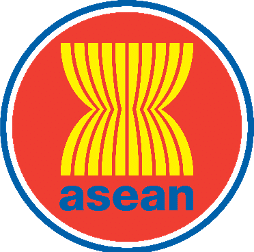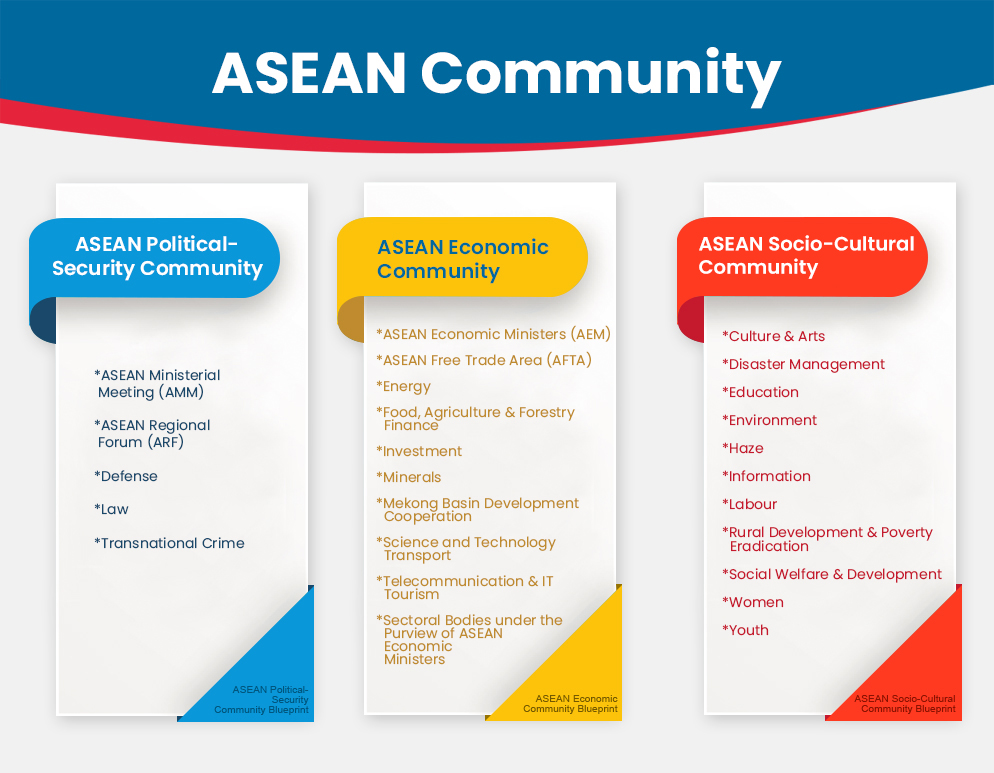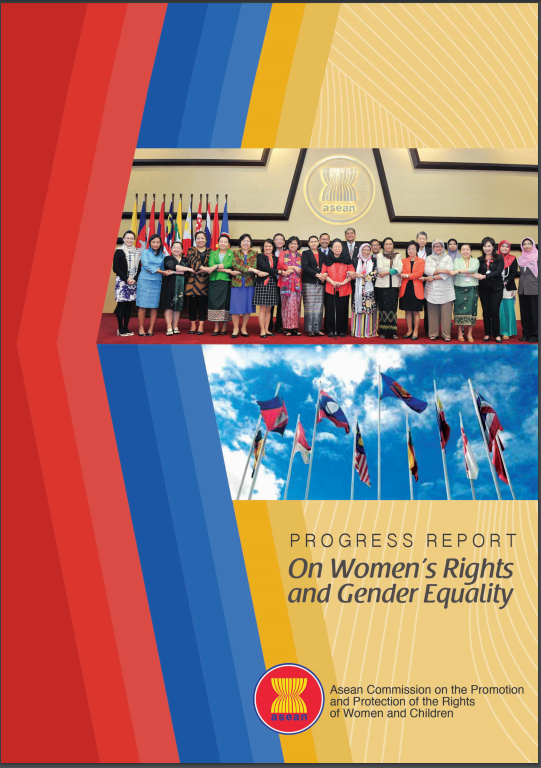Association of Southeast Asian Nations

The Association of the Southeast Asian Nations (ASEAN) is a geopolitical and economic organization established to accelerate economic growth, social progress and cultural development among its ten (10) member states. It also aims to promote peace and stability in the region, active collaboration and mutual assistance on matters of common interest, Southeast Asian studies, and maintain close and beneficial cooperation with other regional and international organizations.
It was established on 8 August 1967 in Bangkok, Thailand with the signing of the ASEAN Declaration by the founding members of ASEAN, namely Indonesia, Malaysia, the Philippines, Singapore and Thailand. Brunei Darussalam then joined in 1984, Viet Nam in 1995, Lao PDR and Myanmar in 1997, and Cambodia in 1999, making up the current 10 Member States of ASEAN. The ASEAN Secretariat was set up in February 1976 and is based in Jakarta, Indonesia.
The ASEAN Community was established in 2015, creating three (3) ASEAN community pillars:
- ASEAN Political-Security Community (APSC)
- ASEAN Economic Community (AEC)
- ASEAN Socio-Cultural Community (ASCC)
Each pillar is composed of relevant sectoral bodies which oversee specific issues in their sector.


The ASEAN Ministerial Meeting on Women (AMMW), the ASEAN Committee on Women (ACW) and the ASEAN Commission on the Promotion and Protection of the Rights of Women and Children (ACWC) are sectoral bodies under the ASCC pillar that are involved with gender equality and women’s and children’s concerns. The Chairperson of the Philippine Commission on Women (PCW) represents the Philippines to the AMMW and ACW. Meanwhile, the President of the Republic of the Philippines appoints two (2) representatives to the ACWC – the women’s rights representative and the children’s rights representative. The PCW provides budgetary, logistical and administrative support to the ACWC women’s rights representative. On the other hand, the Department of Social Welfare and Development (DSWD) provides the same support to the ACWC children’s rights representative.

Prof. Aurora Javate-de Dios of the Miriam College Women and Gender Institute (WAGI) served as the Philippines’ ACWC women’s rights representative for two terms (2010-2016). One of her notable accomplishments is spearheading the Progress Report on Women’s Rights and Gender Equality. The report is considered a baseline document against which future assessments on the women’s situation in ASEAN can be made.
Since 2017, the ACWC women’s rights representative is Dr. Lourdesita Sobrevega-Chan, Chairperson of the University Research Council (URC) of the Ateneo de Davao University.
The following ASEAN declarations and statements on women’s empowerment and gender equality were spearheaded by the ACW and ACWC together with relevant sectoral bodies such as the ASEAN Women Entrepreneurs Network (AWEN) and the ASEAN Women for Peace Registry (AWPR):

